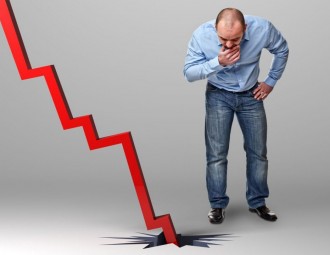Leu Marholin: It looks like the Belarusian PM has got a fortuneteller

The fall of the economy will continue in 2016; we should hardly expect growth in 2017.
Chairman of the Belarusian government Andrei Kabiakou is confidently looking in the future of the Belarusian economy.
For the last time before forwarding it to Lukashenka, the Presidium of the Council of Ministers has discussed the package of prognostic documents for 2017: draft decree "On socio-economic development objectives" and "On the main directions of monetary policy"; draft laws "On national budget" and "On Amendments to the Tax Code".
Kabiakou promises to increase GDP by 1.5% in 2017, forgetting that in the current year GDP has already fell by 2.7%. The official promises the growth of real disposable incomes by 1.2%, although over the first half of 2016 the incomes of Belarusians have decreased by 7% and by 13% - over the last two years.
Government wants to increase gold reserves by half a billion dollars, at the same time decreasing the cost of credit and attract 1.4 billion of foreign investment. Inflation should be shrunk to a digit, even though the largest price increase in the first 7 months of 2016 in the consumer sector among the 25 CIS countries and Eastern Europe was recorded in Belarus.
The promises of the officials sound so sweet. But where do the sources of growth of the Belarusian economy lie?
The EuroBelarus Information Service talked with economist Leu Marholin about it.
- The Prime Minister spoke about "the dynamics of the recovery of economic growth": in comparison with January 2016 the GDP index increased by 1.9% and in the first six months amounted to 97.5% against the planned 100.1%. Where are the sources of GDP growth hidden?
- The only source of GDP growth, which has no connection with the Belarusian authorities whatsoever, is an increase of prices on energy and potassium salt, whereas all the other factors, and above all – investments – have been created by people. If the investment is expected to increase by half in comparison with the previous year, changes in GDP can be extrapolated and predicted. When investments are falling, I hope that our Prime Minister has a fortuneteller, who has seen a sharp increase in the potassium salt prices next year, cause I don’t know any other options.
- Let me site you some numbers. The industrial production index increased by 5.2% and amounted to 98.4% after six months, agriculture from 100.9% increased to 103.3%, and labor productivity increased from 97.3% to 99%. Figures are growing; but why are our lives getting worse?
- Growth for the first half of the year is very relative: usually people compare the respective periods of two years - the previous and current, because there is a seasonal factor, too. Also, the given numbers are still below 100%; the decrease might have slowed down, but the growth is not seen anywhere close.
- The government doesn’t consist of blind politicians who don’t see what’s happening in the country. Where do they get so much optimism then?
- The government is not suicide: the ministers understand that there are only two choices: either you radiate optimism, trying to convince at least somebody in it. Or you hand in your resignation to Lukashenka and admit that you are unable to improve the situation in the current circumstances. But since everyone wants to live well, and even more so nobody wants to end up in prison, what the government is left to do is to radiate optimist. And think about the explanations of why the forecasts fail at the end of the year.
- What is the most likely scenario of economic development in 2017?
- The downfall will continue, at least in the current year – the majority of independent experts and representatives of international organizations share this opinion.
Will growth happen in 2017? I don’t think it will. We need economic reforms for serious economic growth, which are out of question now.
-
03.01
-
07.10
-
22.09
-
17.08
-
12.08
-
30.09










































